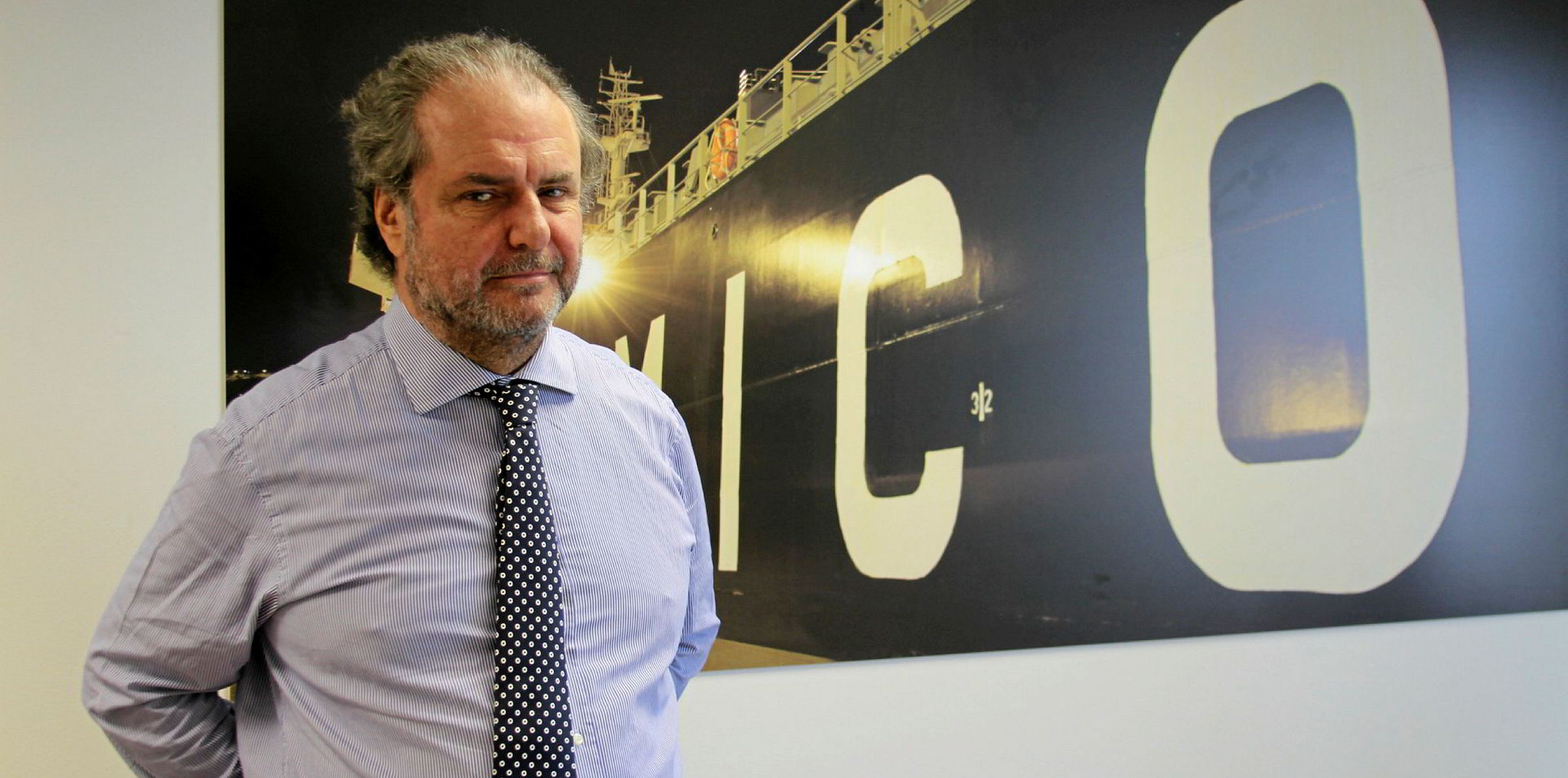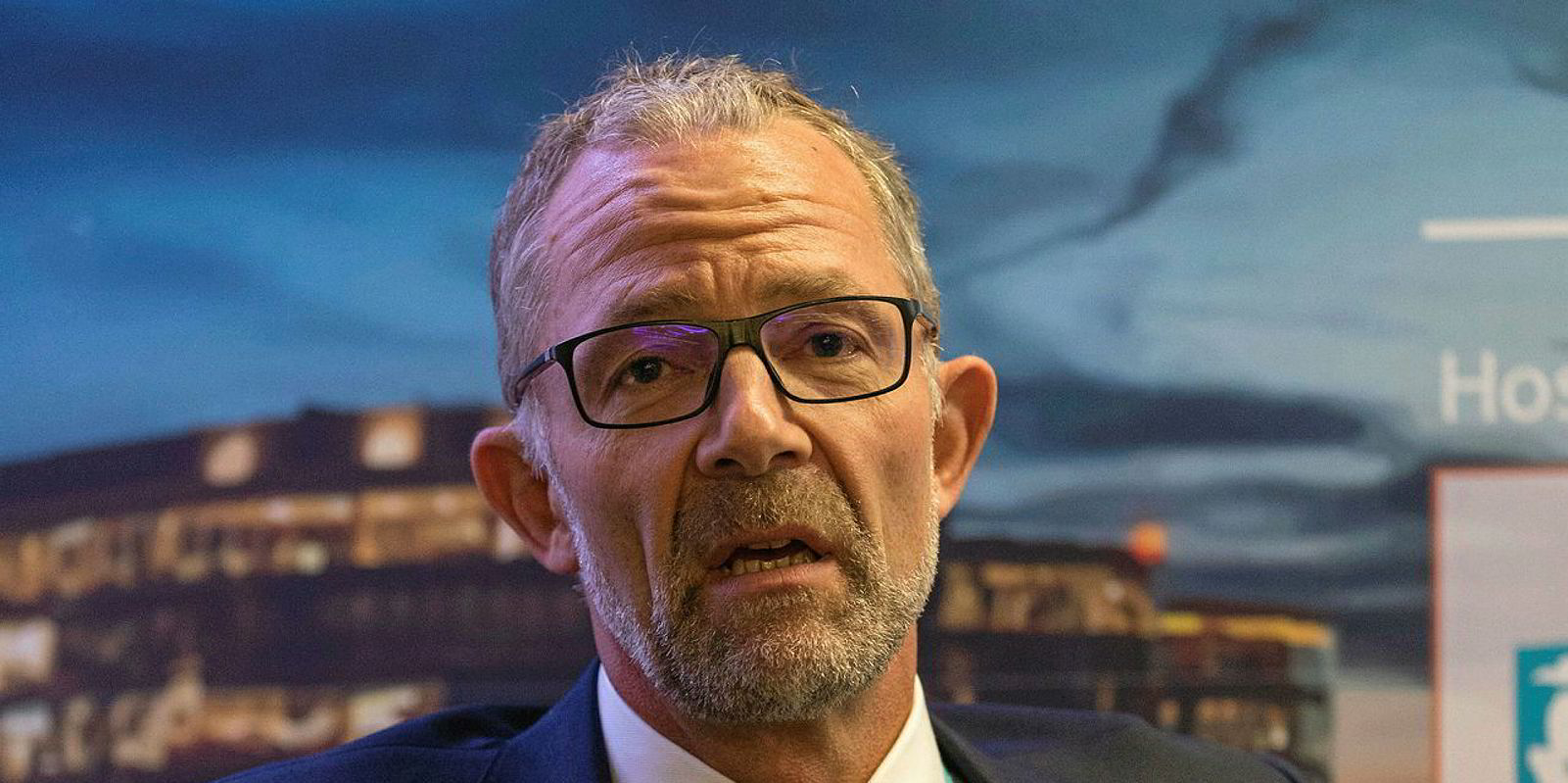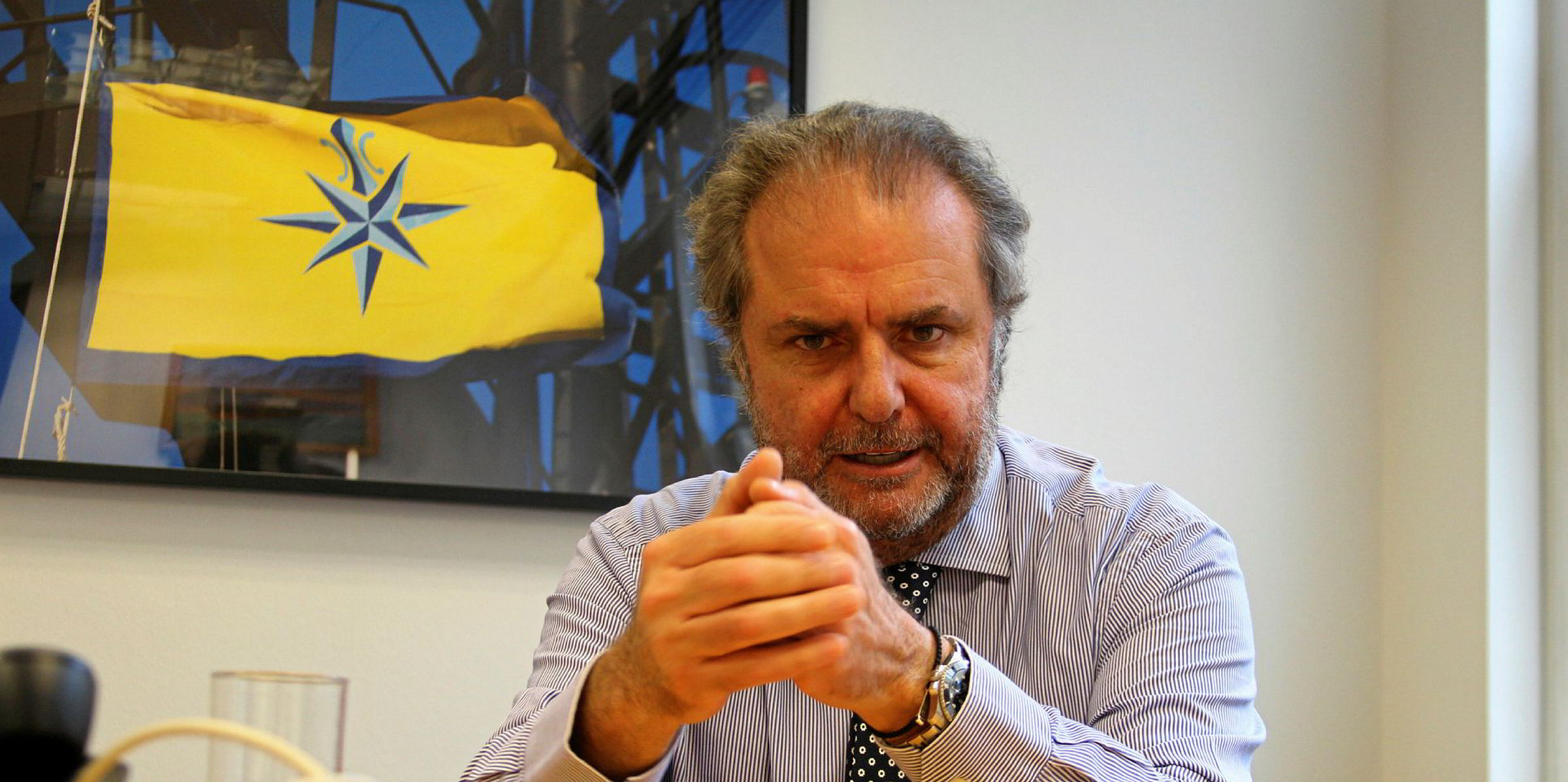Italy's d’Amico International Shipping (DIS) is envisaging more period charters to secure future cash flows despite healthy spot earnings.
In its quarterly update, the Milan-listed product tanker spin-off of d’Amico Societa di Navigazione presented a rosy outlook but admitted the existence of some downside risks.
“Whilst still benefitting from this strong spot market, we would like to maintain a balanced approach moving forward,” DIS chairman and chief executive Paolo d’Amico said.
“In fact, if conditions are favourable we are likely to continue taking advantage of the interest from oil-majors and leading trading houses to fix some of our vessels on period contracts, which are currently at profitable levels.”
The period charter focus is aimed at protecting cash flow from a potential market correction down the road, he added.
D’Amico suggested his company is already in talks over several charters that could last until 2021 or later. “If those are coming in, it will be…quite positive.”
High spot earnings
DIS’s spot fleet recorded an average time charter equivalent rate of $17,354 per day between January and March, up from $13,582 in the same period of 2019.
Consequently, net results of the company improved to $1.52m in the black from $5.4m in red. Revenue rose to $94.4m from $91m.
With an oversupplied oil market due to the coronavirus-triggered demand collapse and earlier price war, d’Amico said product tanker earnings were surging due to floating storage demand.
“Land-based storage facilities quickly reached almost their full capacity and pushed large quantities of crude and petroleum products into tankers as floating storage,” d’Amico said.
“This was extremely beneficial to our industry, despite the very negative impact on oil demand and refining activity of the spread of Covid-19 related lockdowns to Western Europe and the US.”
“Starting from the end of March and especially going into the second quarter of the year, the product tanker market has been hitting unprecedented levels in almost all routes and geographical areas.”
Extension of front cover
The company, which has over 40 handysize, MR and LR1 tankers, only fixed three period charter deals in the first quarter.
One of its handysize ships was fixed to an unnamed trade for 12 months, and another’s existing charter was extended by the same length. One of its LR1s was chartered out for six to nine months.
The average ratio of DIS’ time charter coverage was already at a high level of 64.6% in the first quarter. Moreover, it has covered 53% of available vessel days between April and December at $16,379 per day.
DIS believes weak oil demand during the pandemic and rising inventories could depress demand for product tankers later on, with the downturn possibly starting as early as the third quarter.
But d’Amico stressed: “Our cover for 2020 is good enough to face the correction of the market.”
The CEO remained optimistic for the long-term outlook of product tankers due to a small orderbook, refining expansion in Asia and the Middle East, and governments’ fiscal and monetary stimulus programmes to ease economic impact from Covid-19.
“Longer-term we maintain a very positive outlook for the product tanker industry,” d’Amico said.







